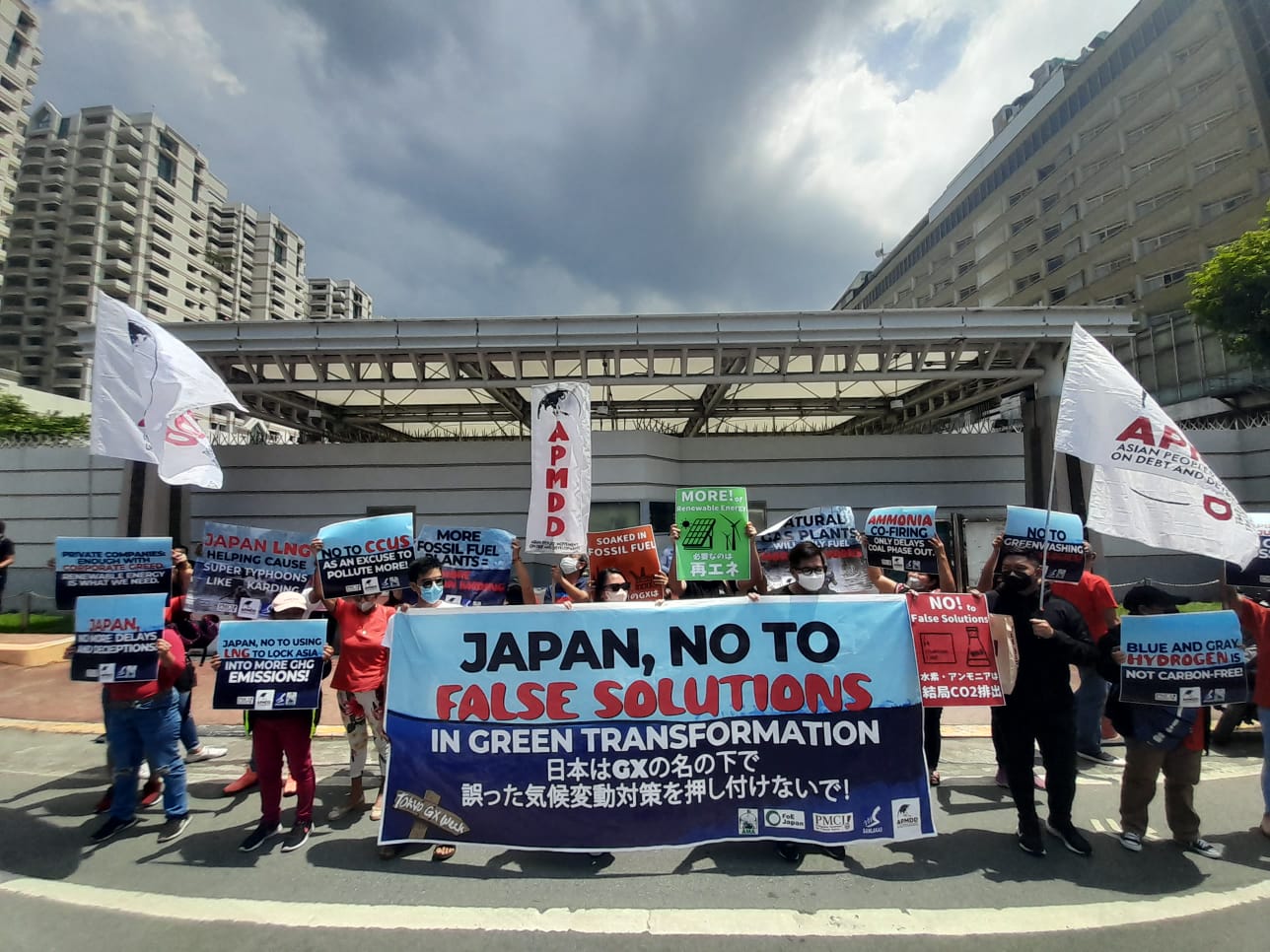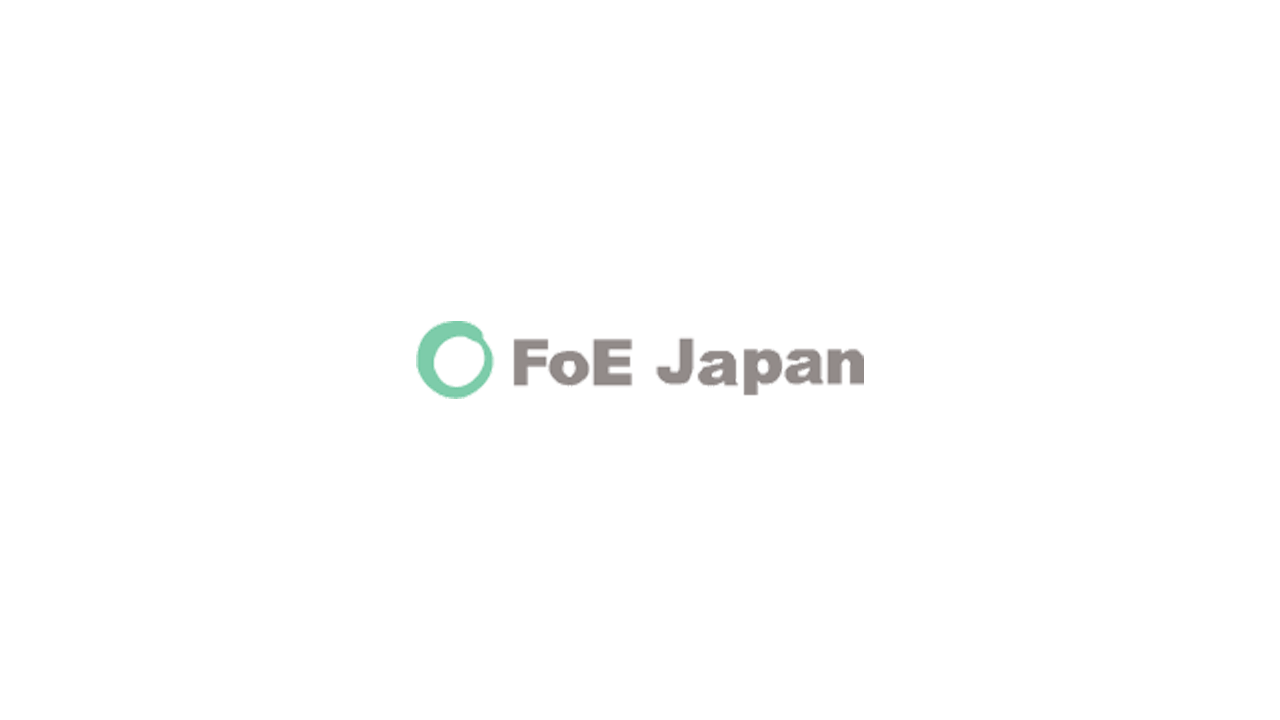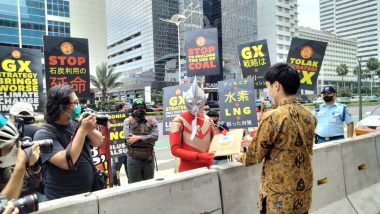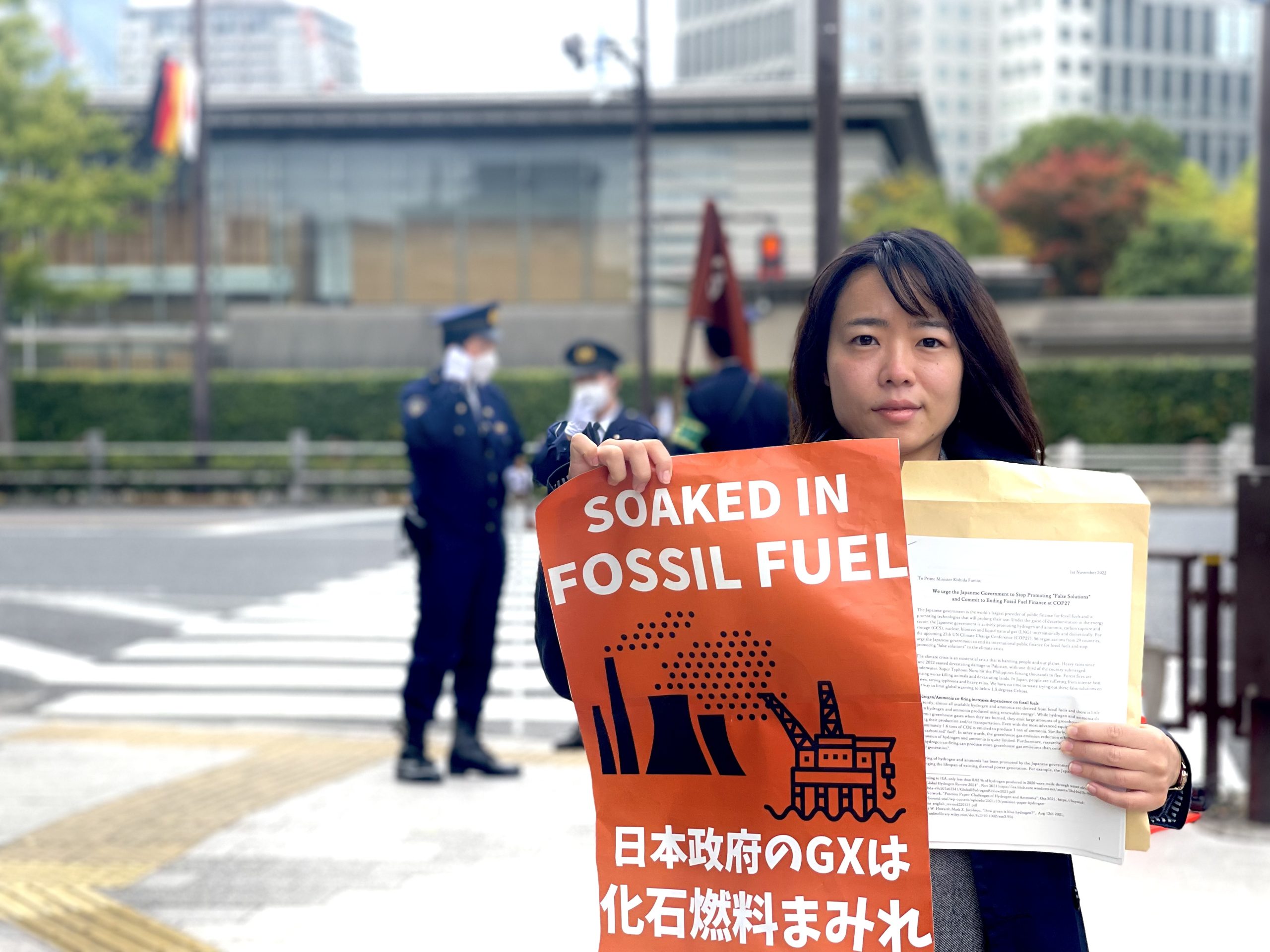Open Letter: ‘No room for fossil fuels in climate-vulnerable developing countries’ - G7 nations must reject the rollout of false energy transition technologies

On April 14, 2023, ahead of the upcoming G7 Climate, Energy, and Environment Ministerial Meeting (April 15 and 16 in Sapporo, Japan), 39 climate and environmental groups, primarily focused in Southeast Asia, submitted an open letter slamming G7 nations’ push for unviable energy transition technologies. These technologies include fossil gas, ammonia/ hydrogen/ biomass co-firing in existing coal / gas-fired power plants, and Carbon Capture and Storage (CCS), raising concerns that they prolong the use of fossil fuels amid a worsening climate crisis.
In particular, Japan, as the G7 presidency, is advancing its dirty energy strategy for Asia through its Green Transformation (GX) policy. Japan’s push for false solutions to climate change in Asia is not only putting the achievement of the Paris Agreement’s 1.5°C target, but also putting biodiversity and people’s livelihoods at risk. It will also lock the Global South into decades of stranded assets, debt traps, and massive greenhouse gas emissions.
Japan must immediately stop peddling its dirty energy strategy for Asia with its false solutions, which are nothing but greenwashing lies.
Below is the text of the open letter.
‘No room for fossil fuels in climate-vulnerable developing countries’: G7 nations must reject the rollout of false energy transition technologies
April 14, 2023
To the Presidents, Prime Ministers, and Climate, Energy, and Environment Ministers of Japan, United States, Britain, Canada, France, Germany, and Italy:
As world leaders meet for the Climate, Energy, and Environment ministerial this week, we are firming up our demand for powerful nations to stop peddling fossil fuels to developing nations. It is high time that G7 nations support a just and equitable energy transition.
Developing nations, including Indonesia, Malaysia, Philippines, Thailand, Vietnam, Bangladesh, and Pakistan, are at the receiving end of plans to expand the life of fossil fuels through so-called “energy transition” technologies, such as ammonia coal co-firing and hydrogen gas co-firing, while fighting back against fossil gas expansion. These are the same nations at the forefront of climate crisis.
Despite global calls to phase out fossil fuels, G7 nations have not shown clear commitments to end fossil fuel buildout in their countries and overseas. A recent draft of the G7 communique shows that ministers agree on the need for new upstream investments in gas, despite the IEA’s call to stop new investments in fossil fuel supply to keep temperatures within 1.5 degrees Celsius.
Research shows that between 2020 and 2022, the G7 poured USD73 billion in public finance in new fossil fuel projects, 2.6 times their support for clean energy over the same period. While the UK, Canada and France have delivered on their commitment to end this fossil fuel finance, Japan, Italy and Germany have not. The US claims it has delivered on its commitment, but its fossil fuel finance policy is not publicly available.
Japan in particular is leveraging its G7 presidency to increase financing for fossil fuels and advance its dirty energy strategy for Asia through its Green Transformation (GX) policy. The government aims to mobilize over USD1.1 trillion in public and private capital over the next ten years to overhaul 22 industrial sectors in Japan and provide partner countries with Japanese technology and finance. However, what Japan calls a “realistic energy transition” relies heavily on the use of fossil fuel-based technologies, including liquified natural gas (LNG), the co-firing of ammonia, hydrogen, and biomass at existing fossil thermal plants, and carbon capture and storage. Furthermore, a draft of the G7 communique cites ammonia as an “effective emission reduction” tool. Experts have warned, however, that the most established type of ammonia is produced from coal and gas, both emissions-heavy fossil fuels.
While we applaud the US and UK for their reported opposition to Japan’s push for fossil fuel technologies in the G7 communique, and their criticism of the text’s lack of emphasis on climate action, much more needs to be done to translate this into concrete actions that will support the energy transition in developing countries. At a time when renewable energy is getting cheaper globally, fossil fuel dependence increases the risks of stranded assets and will further drag developing nations into debt and economic instability against the backdrop of increasing risks of climate disasters.
Therefore, we call on the presidents, prime ministers, and climate, energy, and environment ministers of Japan, United States, Britain, Canada, France, Germany, and Italy to uphold their commitments from the last G7 summit and follow through with the following demands:
Reject Japan’s push for false energy transition solutions. Japan’s mammoth USD1.1 trillion -financing on ammonia, hydrogen, nuclear, and carbon capture and storage through Green Transformation (GX) will not help attain net zero in Southeast Asia, according to Transition Zero. The majority of ammonia and hydrogen is produced from fossil fuels including methane emissions vented throughout the lifecycle of gas. Ammonia co-firing, one of the technologies Japan is pushing for in Southeast Asia, does not cut emissions enough to reach net-zero in Indonesia, Malaysia, Thailand, and the Philippines, even with the most technologically feasible co-firing rate (20% ammonia-80% coal).
Globally, the critical 1.5-degree Celsius Paris Agreement threshold will be put at risk if Japan successfully pushes the wrong technology in Asia. Thus, Japan must not be allowed to peddle its dirty energy strategy for Asia with its false solutions, which are nothing but greenwashing lies.
Stop financing fossil gas in Southeast Asia. The International Energy Agency has said no “new oil and natural gas fields are needed” in the 2050 net-zero pathway. Furthermore, the IEA has declared the golden age of gas is over. We can see this play out in Asia, as Russia’s invasion of Ukraine has destroyed the growth of gas demand in the region due to skyrocketing prices and supply uncertainty.
Yet, Japan, France, UK, US, Germany, Italy are among the top financiers of post-Paris Agreement fossil gas projects in Southeast Asia. The development of more fossil gas plants and terminals is not just delaying climate action. It is also putting biodiversity and people’s livelihoods at risk. We reiterate that fossil gas is not a transition fuel. Rather, it is a risky and dangerous investment that will lock developing nations into decades of stranded assets, debt traps, and emissions.
Commit to a fair and just mechanism to provide funding for the energy transition. Continued investments in fossil fuels create increased risks of stranded assets and shortfalls in government revenue, as competition with cheaper and cleaner alternatives, such as solar and wind, grows and demand for fossil fuels declines. We urge G7 leaders to take advantage of investment opportunities in clean energy and promote a just and equitable transition away from all fossil fuels.
The recent IPCC Synthesis Report was clear: the surest path to avoiding climate catastrophe is to phase out fossil fuels. Greenhouse gas emissions must be cut by almost half by 2030 to come in at or below the 1.5˚C limit, with further reductions to follow. This means all financing mechanisms, such as JETP and ETM, must not include fossil-based solutions consistently.
We demand clarity and transparency following G7 nations’ past commitment to end international public finance for fossil fuels by the end of 2022. We are also raising our demands to ensure our communities are protected from the economic and environmental consequences of fossil fuel dependence.
There’s no room for false energy transition solutions in developing nations. What the world needs is a clear, just, and equitable energy transition mechanism anchored on renewable energy. As powerful nations, G7 must commit to actions to phase out fossil fuels and ramp up renewable energy. A realistic energy transition must address the reality that climate crisis requires ambitious and people-centered actions toward a real-zero pathway.
Sincerely,
- Trend Asia
- Friends of the Earth – Japan
- Japan Center for a Sustainable Environment and Society (JACSES)
- Greenpeace Southeast Asia
- Wahana Lingkungan Hidup Indonesia (WALHI) / Friends of the Earth – Indonesia
- Kiko Network
- Centre for Financial Accountability
- EcoWaste Coalition
- Wahana Lingkungan Hidup Indonesia (WALHI) West Java
- Vietnam Zero Waste Alliance
- Waterkeepers Bangladesh
- Bangladesh Poribesh Andolon (BAPA)
- Bangladesh Working Group on External Debt (BWGED)
- Coastal Livelihood and Environmental Action Network (CLEAN)
- Koalisi Rakyat untuk Hak atas Air (KRuHA) / People’s Coalition for the Right to Water
- 350.org
- Aotearoa Plastic Pollution Alliance (APPA)
- Mighty Earth
- Mekong Watch
- Green Vientiane
- Center for Energy, Ecology, and Development
- NGO Forum on ADB
- Sahabat Alam Malaysia
- Friends of the Earth Papua New Guinea
- Recourse
- WasteLess India
- Asian Peoples’ Movement on Debt and Development (APMDD)
- Break Free From Plastic
- Friends of the Earth – Australia
- Friends of the Earth – Nepal / Pro Public
- Mother Earth Foundation
- Pacific Environment – United States
- Oil Change International
- Legal Rights and Natural Resources Center
- Centre for Environmental Justice / Friends of the Earth – Sri Lanka
- Initiatives for Dialogue and Empowerment through Alternative Legal Services (IDEALS, Inc)
- Fair Finance Asia
- Solutions for Our Climate
- Asia Energy Network


